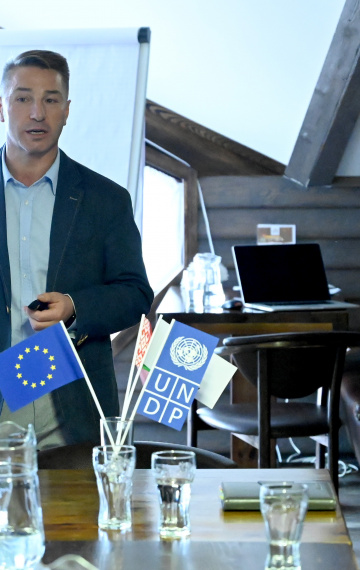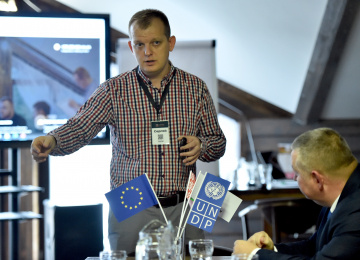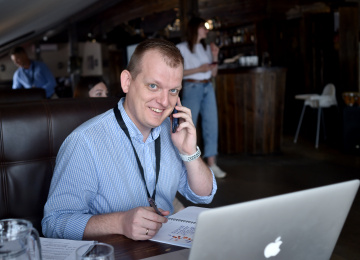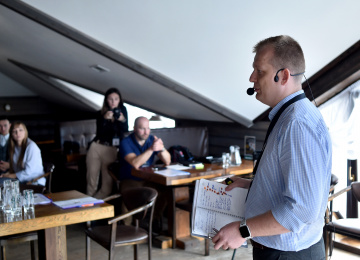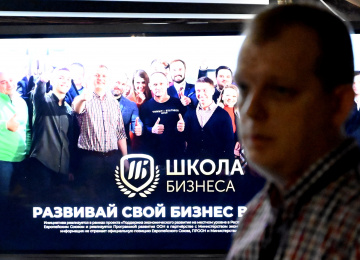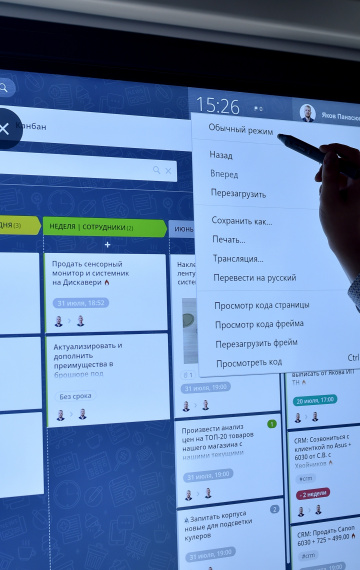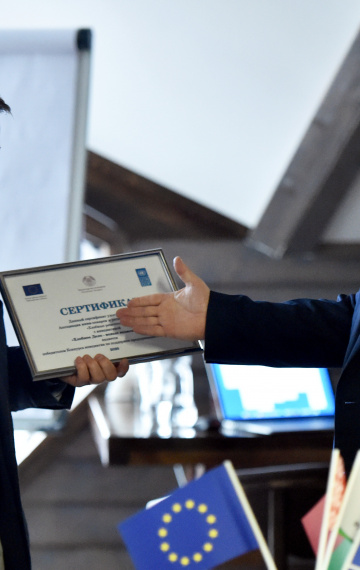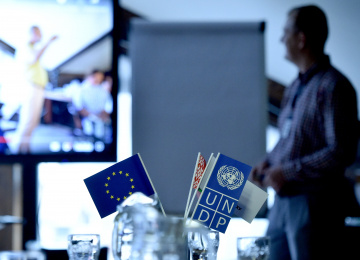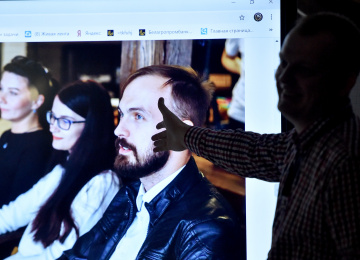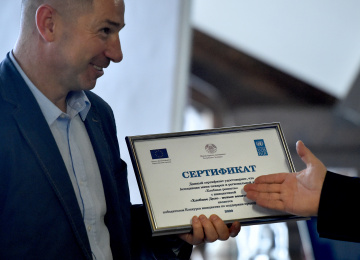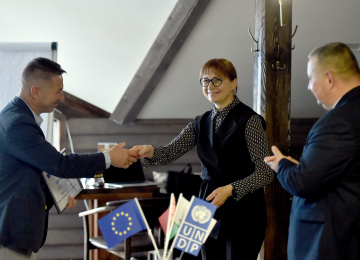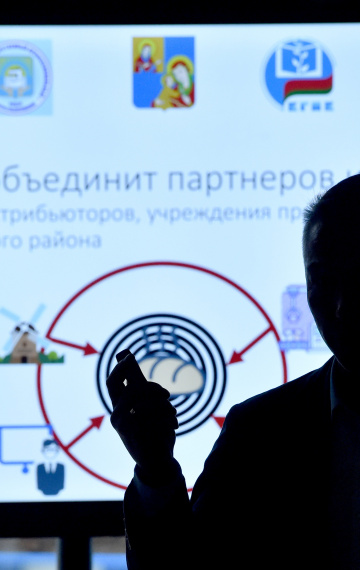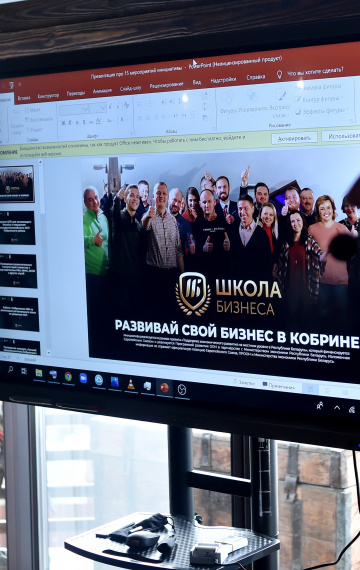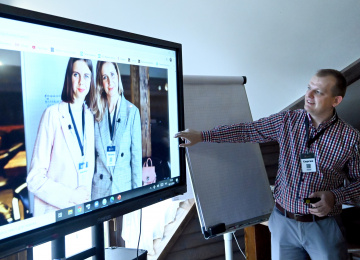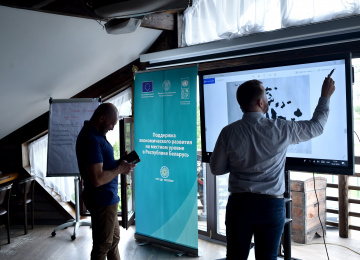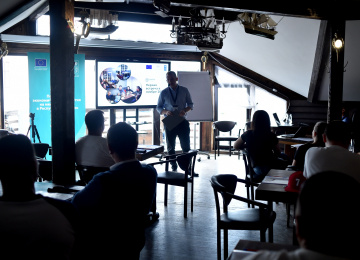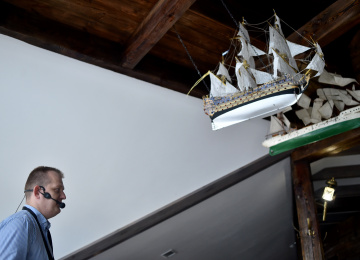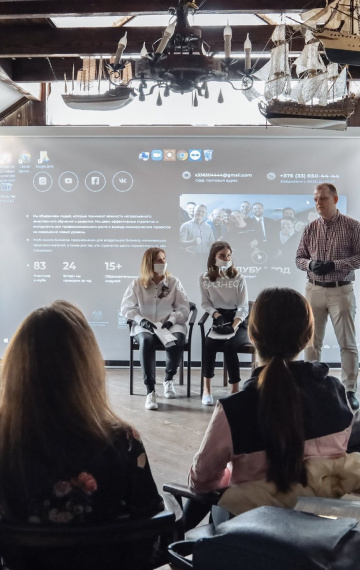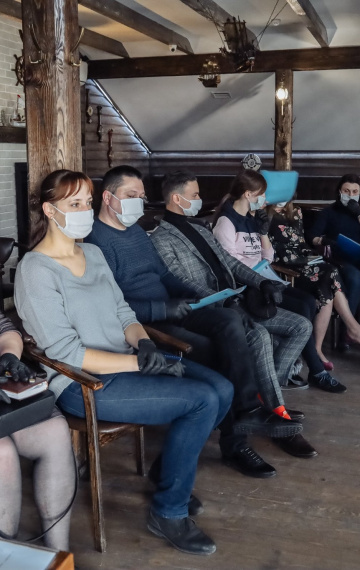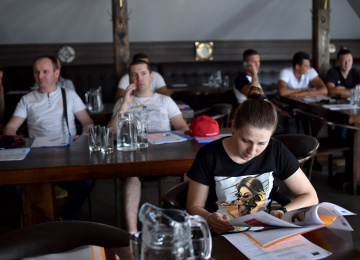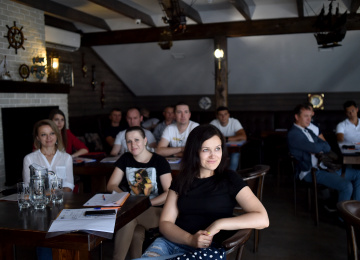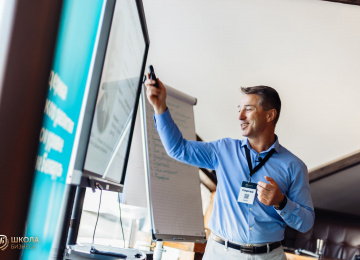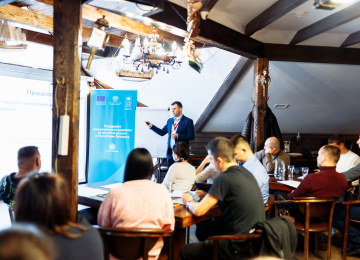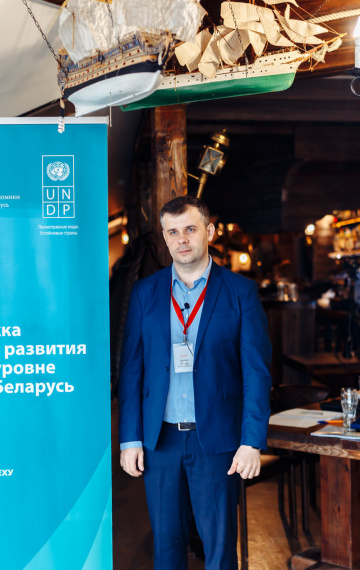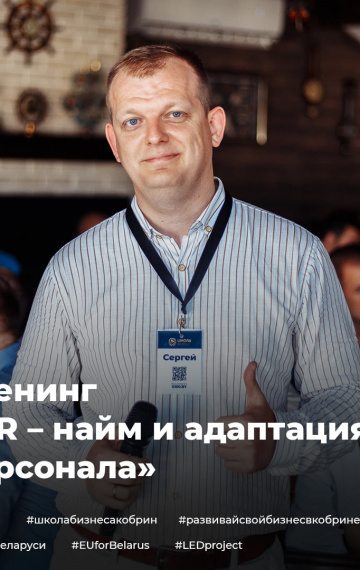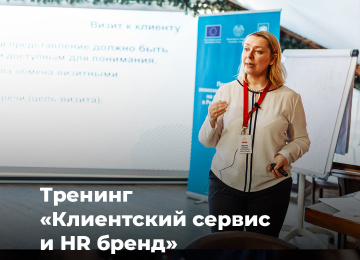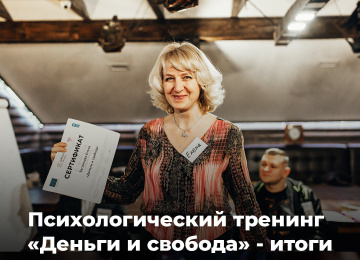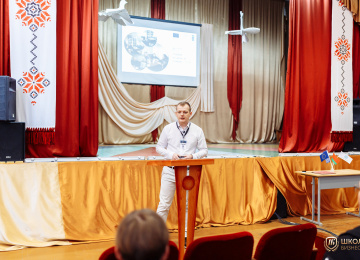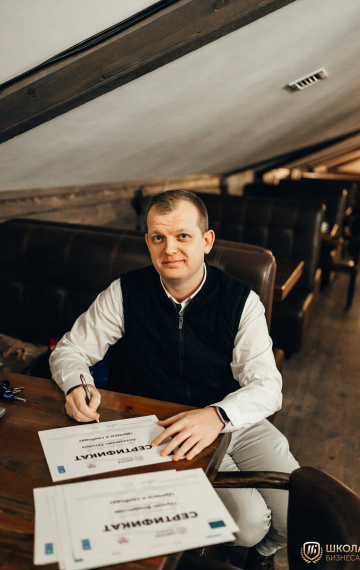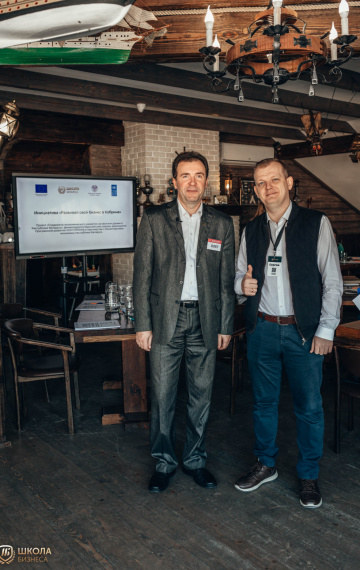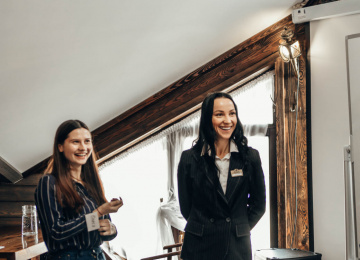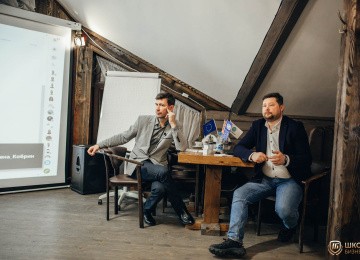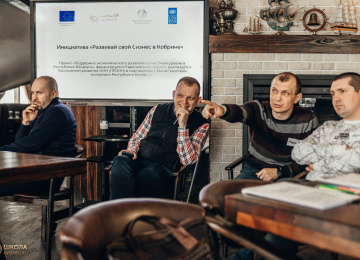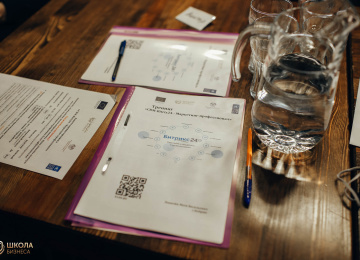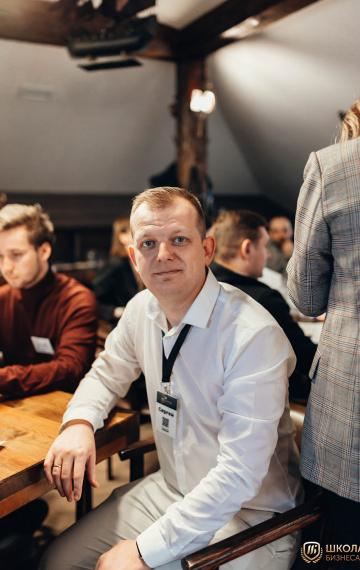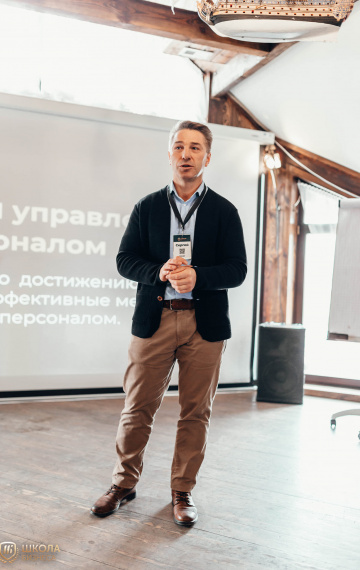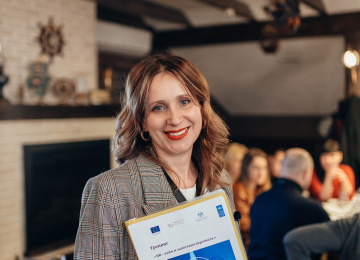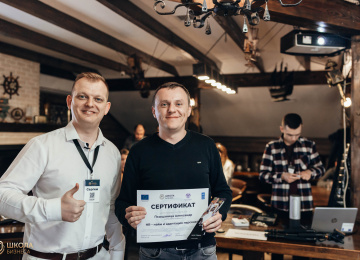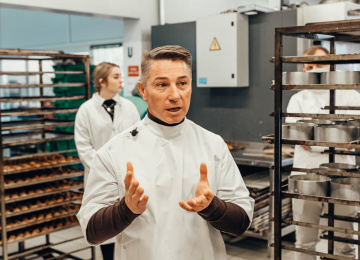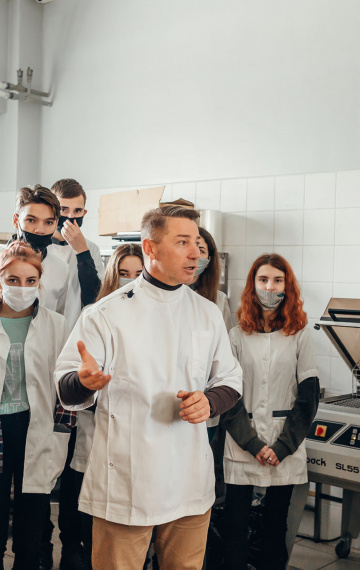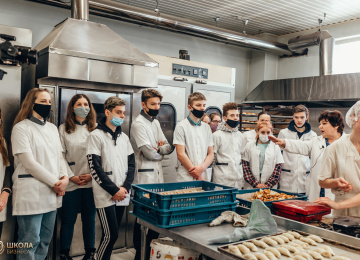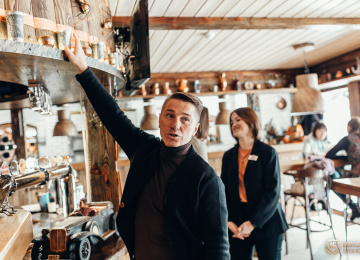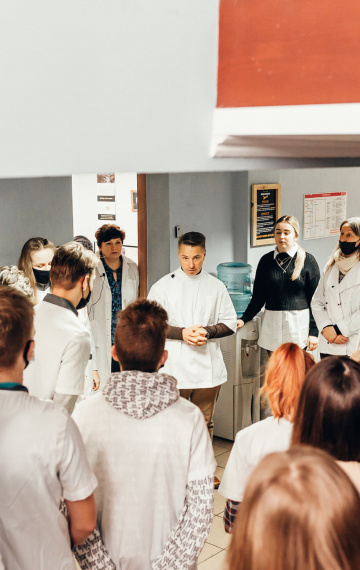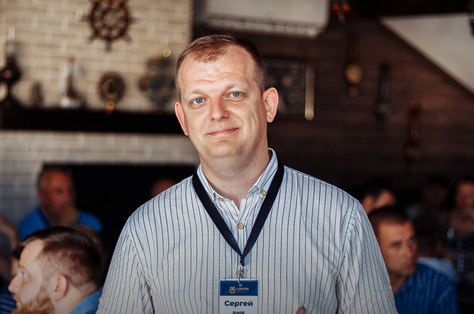
The EU Project helped a local business club in Belarus go to a new level, turning from informal community of entrepreneurs to an official business support centre in just one year. Now it has more than 150 active business owners who share their experience and knowledge with others, and have also established dialogue between the business community and the government.
“Being an entrepreneur is not a profession, it’s a mindset”
Kobryn resident Sergey Panasyuk started out helping his parents sell homegrown vegetables. He says that he got hooked on entrepreneurship when he was 10 and learned to make his first savings. He plunged into entrepreneurship when he was a fresher. After graduating from high school, he worked by hire, then opened his own computer service, and then began to work not only in service, but also in computer sales.
“Being an entrepreneur is not a profession, it’s a mindset,” says Sergey Panasyuk. “Some people are not afraid to take control of their lives. If you love what you do, then you don’t care if it’s raining outside, you’re always up to something.”
Shortly after launching his own business, it became clear to Panasyuk that he lacked crucial business knowledge. He decided to attend professional workshops and conferences in Minsk and neighbouring countries.
“The main thing that business trainings gave me then was connections,” Panasyuk notes. “I soon realized that I wasn’t really learning anything new there: it was all the same, only put in different words. I wasn’t looking for knowledge, I was looking for other people’s expertise. We say that the heaviest tax for entrepreneurs is the ‘rookie tax,’ when you lose money, time and opportunities due to ignorance and lack of experience.”
Sergey Panasyuk went for advice to experienced business owners who were prepared to help beginners learn from their mistakes. Whenever Panasyuk heard about a well-known business professional in his field, he would immediately reach out and ask for a tour of that person’s company to exchange best practice to shorten his way to success. Entrepreneurs in neighbouring countries who did not see the Belarusian businessman as a competitor would often give a hand.
“I filmed everything to analyze later, because while you’re under various impressions, you miss a lot,” says Panasyuk. “Then I showed what I saw to employees and partners, and implemented some things in daily practice. It was a mutually beneficial cooperation: some of the business owners even called to thank me later. They said I helped them see problem areas that they had simply not noticed before. After all, when you go to your store every day, your vision becomes blurry.”
“They called us the Kobryn Businessmen”
Panasyuk’s next ambition went beyond developing his own business: he wanted to help others and bring together the business owners of Kobryn. The idea seemed simple and ingenious at the same time: to set up a meeting with all the entrepreneurs he knew.
“I had about 300 contacts, most of them entrepreneurs and managers,” explains Panasyuk. “At the same time, I understood that I needed to call people who were not my direct competitors.”
The first meeting of the future business school was attended by 12 individuals who did not know each other. Together, the entrepreneurs analyzed specific cases, old-timers shared their experience with newcomers, and people visited each others’ enterprises. People liked the format so much that over the next year meetings were held every Tuesday. The number of participants grew to more than 80 people over the year, but the core group remained the same and Panasyuk was in charge of everything.
“We were the pioneers in our town, so many heard about us and called us ‘The Businessmen of Kobryn,’” Panasyuk laughs.
Over time, the business school faced a new challenge: the community could not solve some issues on its own, and it couldn’t raise them with the local administration directly, because it lacked official status.
“I realized that we had to take things to the next level, turn our hobby into something more formal,” recalls Panasyuk. “But this takes extra time and responsibility, and it means that sometimes you do things just because you have to.”
Today, the Business School represents over 150 businesses of Kobryn and the region, 80% of them local entrepreneurs with more than 5 years of business experience.
“Our experience is unique and needs to be shared nationally”
In 2019, Belarus launched the Local Economic Development Project , funded by the European Union, implemented by UNDP as part of the EU4Business initiative, together with the Ministry of Economy of Belarus. So far, 75 initiatives have won grants, including Kobryn’s Business School. The goal of the Project is to increase the competitiveness of SMEs at the local level in Belarus.
“We came third out of 76 applications from!” says Sergey with pride. “Not only did we receive funding from the EU, but we also had to work very hard to get at least a chance to take part in this competition. To be honest, this is not an easy job, but we aren’t sitting on our laurels. We organize 15 large-scale events in line with the schedule for the second year in a row.”
Among the Kobryn Business School’s activities are the development of their own website, making training videos, holding seminars for school members with instructors invited from other regions to exchange best practice and new technologies.
The Business School has also launched its own YouTube channel, with plenty of training videos and business literature reviews. Participating entrepreneurs visit educational institutions in the area, including rural areas, to tell senior students about the art of entrepreneurship.
“We were told that our experience is unique at the national level and needs to be expanded, because it’s hard to find such open and friendly gatherings of business people elsewhere,” says Panasyuk. “I’m sure that soon the Business School will appear not only in Kobryn, but in many other towns of Belarus. But all this would have been impossible without the support of the EU. The project was the catalyst that pushed us forward.”
The EU Project financed the purchase of the necessary equipment for educational events, and it funded corporate training for six active participants of the Business School in a variety of areas, from marketing to sales and negotiations.
“We’re also planning to set up an online course called ‘Prepare to start your business!’ as a step-by-step guide for new entrepreneurs,” Panasyuk concludes. “It will be free of charge for everyone not only from Kobryn, but from anywhere in Belarus.”
It has been a little more than a year since Sergey Panasyuk filed an application called “Develop your business in Kobryn.” The pandemic pushed the initiative’s end date to November 2021, but there is little doubt that Business School has a great future.
